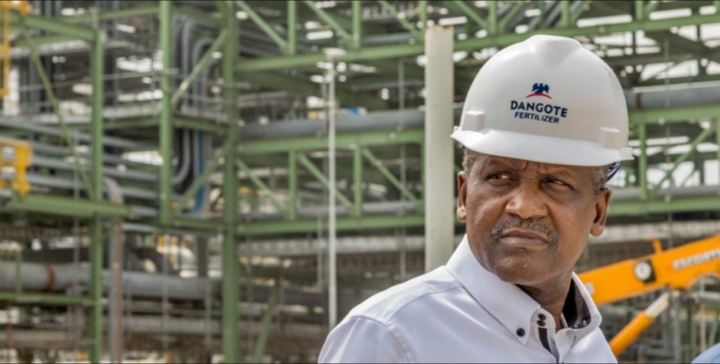Dangote Petroleum Refinery has officially restated that membership in any trade union remains a voluntary decision, in compliance with both Nigerian law and international labour standards. The declaration comes amid escalating discord between the refinery and the Nigeria Union of Petroleum and Natural Gas Workers (NUPENG) over alleged breaches of an agreement on worker unionisation.
According to a statement issued by the refinery, it neither compels nor prevents its workers from joining any recognised trade union. Management said reports to the contrary—particularly allegations that drivers were forced to sign contracts barring them from union affiliation—are false and represent a mischaracterisation of its labour relations with its workforce. The company urged NUPENG to focus its energies on resolving its internal dispute with the Petroleum Tanker Drivers (PTD) unit, rather than attributing statements or actions to the refinery that they claim are not accurate.

The controversy stems from a Memorandum of Understanding (MoU) signed on September 9, 2025, at the Department of State Services headquarters in Abuja. The MoU, brokered by government actors including the ministries and the DSS, affirmed that employees of Dangote Refinery and its petrochemical arm who wish to unionise should be permitted to do so, and that no worker would suffer any form of intimidation or victimisation for their union affiliation. The agreement also included a timeline: the unionisation process was to begin immediately and conclude within the period of September 9 to 22.
Despite the MoU, NUPENG has accused the refinery’s management of violating the terms by issuing instructions to truck drivers—members of the PTD branch—to remove union stickers from their vehicles. NUPENG claims this action undermines the agreement and threatens the voluntary nature of union membership. The union has warned that unless the refinery reverses the directive and adheres to the MoU, it may re-activate its suspended nationwide industrial action.
In response to these allegations, Dangote Refinery rejected claims of union suppression as misconceived. The company emphasised that it has long supported union activity within its facility by providing offices, vehicles, and unrestricted access for recognised labour organisations. It asserted that the matter is one of worker choice, not employer coercion. “Association with any trade union remains strictly voluntary,” the refinery said, pointing out that no one is being forced to either join or not to join, and that employees wishing to affiliate to unions are free to do so.
Key stakeholders, including the Ministry of Labour, the Nigeria Labour Congress (NLC), and the Trade Union Congress (TUC), were involved in the mediation process. Government officials present during the MoU signing emphasized the need for both sides to abide by the terms of the agreement and avoid acts that could escalate the dispute.
Still, union leaders argue that the removal of union identifiers from tanker trucks, and the order for drivers to load despite alleged union affiliation, constitute violations. They say these actions violate not only the spirit of the agreement but also workers’ constitutional rights. NUPENG has expressed concern that such steps erode trust and may force a return to industrial action if the situation is not remedied promptly.
The refinery, on its part, has insisted that all operations remain compliant with labour law and international conventions, including those of the International Labour Organization (ILO). It has challenged NUPENG to refrain from statements that the company describes as distortions of fact, arguing that such public assertions could disrupt ongoing industrial peace and affect public confidence.
Observers say that the outcome of this standoff is being closely watched, not just by the parties involved but by wider sectors where labour rights, employer-employee relations, and unionisation policies are under scrutiny. The refinery is a high-profile case, especially with its scale of operations and significance for Nigeria’s energy sector. Any breakdown in the agreement, analysts suggest, could lead to fuel supply disruptions, industrial unrest, or legal challenges.
For workers, particularly those in the PTD unit, what matters now is assurance that they will not face retaliation or disadvantage for asserting their rights. Union leaders have called on the refinery to reverse the sticker removal directive and to ensure that drivers are allowed to operate without pressure to disassociate from union membership. The union has also asked for fresh, verifiable steps to be taken toward fulfilment of the MoU’s commitments.
In the midst of the dispute, Dangote Refinery also touched on other fronts, noting its expansion in operations, its investment in compressed natural gas (CNG)-powered trucks, and the benefits it claims to have delivered in terms of worker compensation, welfare, and its role in the national energy transition. While these points do not directly resolve the unionisation dispute, they form part of the broader context in which the company seeks to demonstrate its commitment to employee welfare.
As both sides appear to be under pressure to maintain stability, it is likely that government mediators will continue to play a key role. The MoU’s timelines mean that the period between September 9 and 22 will be critical: whether Dangote Refinery adheres to its undertaking, whether NUPENG drops calls for strike if violations are addressed, and whether trust can be rebuilt in a way acceptable to both parties.
For now, the company’s public position is firm: union membership is voluntary, and any forced or coerced affiliation claims are denied. The union’s position is, in turn, that certain actions by management are breach of what was agreed. What emerges in the coming days will determine whether the dispute de-escalates or reignites.
Support InfoStride News' Credible Journalism: Only credible journalism can guarantee a fair, accountable and transparent society, including democracy and government. It involves a lot of efforts and money. We need your support. Click here to Donate
